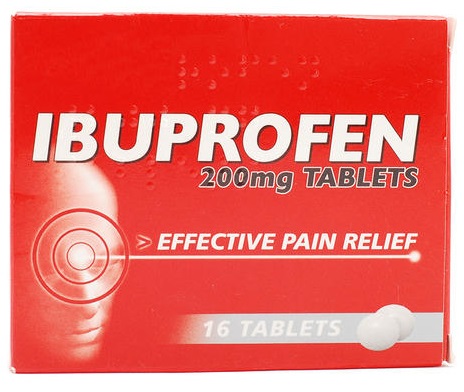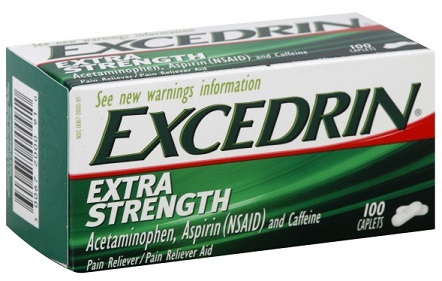Contents
How does ibuprofen reduce fever
Ibuprofen is a nonsteroidal anti-inflammatory drug (NSAID). Ibuprofen is a Generic name for a drug containing the same name active ingredient.
It is used as a pain reliever for various conditions such as: headaches, dental pain, muscle pain, tendinitis (inflammation or irritation of a tendon, a thick cord that attaches bone to muscle), menstrual cramps, and for the treatment of pain, swelling and joint stiffness caused by arthritis, osteoarthritis, juvenile arthritis, bursitis, ankylosing spondylitis, psoriatic arthritis and gout.
It can also be used to temporarily reduce fever and for the treatment of common cold symptoms. Ibuprofen may be used intravascular with opiates for relieving moderate to severe pain. Ibuprofen lysine may be also used intravscular as a therapy for premature neonates with ductus arteriosus.
Ibuprofen is available in following dosage forms and strengths: capsule, capsule liquid filled, capsule coated (200, 220 and 400 mg), injection (100mg/ml), oral liquid (100 mg/5mL and 50 mg/1.25mL), solution (100 mg, 100 mg/5mL), suspension (100 mg, 200 mg/10mL, 100 mg/5mL) and tablet (200, 300, 400, 600 and 800 mg).
Common Brand names for ibuprofen are: Advil, Motrin, Brufen, Calprofen, Genpril, Ibu, Midol, Nuprin, Cuprofen, Nurofen, Ibuprofen 800 and PediaCare Children’s Pain Reliever/Fever Reducer IB.
What is Excedrin
Excedrin is a Brand name for a drug containing a combination of acetaminophen, aspirin, and caffeine. Acetaminophen works as fever reducer and weak pain reliever.
Aspirin works by reducing body substances that can cause inflammation, pain and fever. Caffeine works as a stimulant of the central nervous system, and it can add analgesic effects of NSAID drugs when they are used together. In blood vessels, it relaxes muscle contractions improving blood flow.
Excedrin is used for the treatment of pain that can be caused by migraine headaches, tension headaches, menstrual cramps, muscle aches, arthritis and toothaches. It is also used as for a treatment of a common cold, or nasal congestion.
Other Brand names on the market for the drugs containing acetaminophen, aspirin, and caffeine are: Arthriten, Backaid IPF, Anacin Advanced Headache Formula, Goody’s Headache Powders, Pamprin Max and Pain Reliever Plus.
How does Ibuprofen and Excedrin work in the body
Ibuprofen inhibits synthesis of prostaglandins (substances in the body that play a key role in pain and inflammation processes in body tissues) by inhibiting at least 2 cyclooxygenase (COX) isoenzymes, COX-1 and COX-2.
Inhibition of COX-2 leads to the anti-inflammatory, analgesic and antipyretic effects while the inhibition of COX-1 may cause gastrointestinal bleeding and ulcers.
Ibuprofen has the lowest risk of causing gastrointestinal bleeding of all NSAID, producing balanced inhibitory effects on both COX-1 and COX-2 isoenzymes. But, this advantage is lost at high doses.
This drug may also inhibit chemotaxis, decrease proinflammatory cytokine activity, alter lymphocyte activity, and inhibit neutrophil aggregation – these effects may also contribute to anti-inflammatory activity.
Acetylsalicylic acid works by irreversibly inhibition of the activity of both types of cyclooxygenase COX-1 and COX-2 by decreasing the formation of precursors of prostaglandins and thromboxanes from arachidonic acid.
This makes acetylsalicylic acid different from other NSAIDS drugs such as ibuprofen or diclofenac which are reversible inhibitors of COX enzymes.
In platelets low-doses of aspirin (75-100 mg) can irreversibly blocks the production of thromboxane A2, producing an inhibitory effect on platelet aggregation during the lifetime of the platelet which is 8–9 days. This property makes aspirin useful for reducing the incidence of heart attacks.
Acetaminophen is highly selective COX-2 inhibitor that inhibits prostaglandin synthesis. It can inhibit COX-2 in CNS. Acetaminophen also acts on the hypothalamic heat regulating centers to produce antipyresis.
Acetaminophen’s reactive metabolite N-acetyl-p-benzoquinone imine (NAPQI) can cause a potentially fatal, hepatic necrosis through the process of lipid peroxidation if acetaminophen is overdosed (more than 4g daily).
Caffeine is commonly added to common analgesics such as ibuprofen, acetaminophen and aspirin, because many studies suggest that it accelerate absorption and enhances analgesic efficacy of this drugs.
Can patients take Ibuprofen and Excedrin together
Patient should not use Ibuprofen and Excedrin together at the same time. Excedrin contains acetaminophen, aspirin, and caffeine. Ibuprofen is very similar to aspirin, and both they have same effects.
Co-administration of Ibuprofen and Excedrin will probably not be beneficial and may cause harm. If they are taken together, these medicines can increase the risk of side effects to happen by causing stomach upset and bleeding that may lead to a stomach ulcer.
The best option is to choose one product, and if it is not sufficient for their pain, patients should talk with their pharmacist or health care provider who could suggest other therapy options, depending on the type of pain they are experiencing.
The table below shows side effects after Ibuprofen and Excedrin administration in recommendable doses. The incidence can be significantly increased if these drugs are overdosed or taken together.
| Frequency Not Defined | Dermatologic problems, Angioedema, CNS alteration, ulceration, GI pain, bleeding, Bronchospasm, Hearing loss, Platelet aggregation inhibition, Nausea, Vomiting, Rash, Renal damage, Tinnitus, Urticaria, Premature hemolysis, Hepatotoxicity, Pulmonary edema, Vomiting, Headache, Fluid retention, Dizziness, Heartburn, Constipation |
Special precautions and warnings during Ibuprofen and Excedrin administration:
- Patients should tell their doctor and pharmacist if they are allergic to ibuprofen, acetaminophen, aspirin or any other NSAIDs such as ketoprofen or naproxen, any other medicines, or any of the inactive ingredients that can be found in those products. Ask your pharmacist or check the label on the package for a list of the inactive ingredients.
- Excedrin contain aspirin and it shouldn’t be given to a child or teenager with a flu symptoms, fever, or chicken pox. In these patients, Aspirin can cause a serious condition called Reye’s syndrome that can sometimes be fatal in children.
- Patients should tell their doctor and pharmacist what prescription and nonprescription medications, nutritional supplements, vitamins, and herbal products they are taking or plan to take. Patients should tell their doctor if they are using any of the following drugs: acetazolamide, ACE inhibitors such as benazepril, captopril, enalapril, fosinopril, lisinopril, moexipril, perindopril quinapril, ramipril and trandolapril, diuretics, lithium and methotrexate. Doctor may need to change the doses of these medicines or monitor carefully for side effects.
- Patients should tell their doctor or pharmacist if they have or ever had conditions such as: asthma, nasal polyps, frequent stuffed or runny nose or swelling of the feet, ankles, hands, arms, or lower legs; lupus, liver or kidney disease.
- If Ibuprofen is given to a child, parents should tell the doctor if the child has not been drinking enough fluids or has lost a large amount of fluid after repeated diarrhea, vomiting.
- Patients should tell their doctor if they are pregnant, especially if they are in the last few months of pregnancy. These drugs shouldn’t be used during pregnancy. Aspirin may harm the fetus and cause problems with delivery if it is taken during the last few months of pregnancy.
- Patients with phenylketonuria should avoid these medicines.
- Acetaminophen overdose can lead to acute liver failure. Acetaminophen administration shouldn’t exceed the doses of 4g per day.
- Patients should tell their doctor if they have ever had a rash while taking acetaminophen.
- Patients with phenylketonuria should avoid these medicines.
- Patients should also know that combination acetaminophen products for cough and colds containing cough suppressants expectorants, nasal decongestants and antihistamines, should not be used in children younger than 2 years of age. In children 2 through 11 years of age such combinations should be used carefully and only according to the directions on the label.


